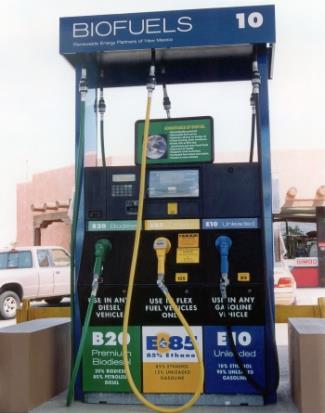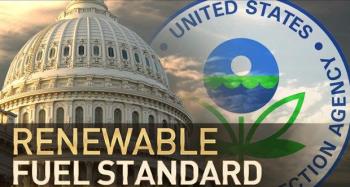 EGG-NEWS previously reported on the ruling by the U.S. Court of Appeals for the 10th circuit in Denver setting aside EPA waivers that were awarded contrary to established policy. Since the DOJ did not appeal, the January 24th decision of the Court will be implemented restricting the ability of the EPA to continue to grant the number of exemptions as in recent years. Since 2016 twenty-eight exemptions have been granted with twenty-five pending requests for 2019. In practice the EPA has deferred on rescinding waivers pending the outcome of an appeal by affected fuel refiners.
EGG-NEWS previously reported on the ruling by the U.S. Court of Appeals for the 10th circuit in Denver setting aside EPA waivers that were awarded contrary to established policy. Since the DOJ did not appeal, the January 24th decision of the Court will be implemented restricting the ability of the EPA to continue to grant the number of exemptions as in recent years. Since 2016 twenty-eight exemptions have been granted with twenty-five pending requests for 2019. In practice the EPA has deferred on rescinding waivers pending the outcome of an appeal by affected fuel refiners.
The original lawsuit opposing waivers by the EPA was filed in May 2018 by the Renewable Fuels Association, the National Corn Growers Association, the American Coalition for Ethanol and the National Farmers Union. In a joint statement the groups noted, “Abiding by the court’s ruling is the right thing to do at a time when our industries and rural America are already suffering from the effects of COVID-19, the Saudi-Russia oil price war and ongoing trade disputes, actually a self-inflicted wound. The groups also called on the EPA to restore 500 million gallons of ethanol waived in 2016 as ordered by the U.S. Court of Appeals for the District of Columbia in 2017.
In the January 24th ruling the court ruled that EPA had “abused its discretion” by not explaining its conclusions as to how a small refinery with a waiver could suffer disproportionate economic hardship while also passing on RFS compliance costs onto consumers at the pump. At issue was the legal requirement that RFS waivers, in most cases, should represent an extension of a previous waiver. In three case reviewed, all waivers were original and therefore not in compliance with established regulations.
 The entire ethanol industry exists by virtue of government mandates established before the U.S. was a major oil producer. The program was intended to reduce dependence on imports from foreign and frequently unfriendly suppliers, including Venezuela, Russia and even Middle Eastern States. Since this time shale oil and abundant gas has rendered corn-based ethanol superfluous. Notwithstanding reality the program has become a government supported “right” by farmers, ethanol refiners and corn-state legislators on both sides of the aisles of Congress.
The entire ethanol industry exists by virtue of government mandates established before the U.S. was a major oil producer. The program was intended to reduce dependence on imports from foreign and frequently unfriendly suppliers, including Venezuela, Russia and even Middle Eastern States. Since this time shale oil and abundant gas has rendered corn-based ethanol superfluous. Notwithstanding reality the program has become a government supported “right” by farmers, ethanol refiners and corn-state legislators on both sides of the aisles of Congress.
Forcing ethanol into gasoline at a nominal level of 10 percent artificially supports the price of corn by up to a $1 per bushel, reduces fuel mileage by 3 percent using E-10 and has a negative effect on the environment. The true value of ethanol is denoted by both the prevailing U.S. price and failure of the ethanol industry to export surplus production. Restrictions imposed to control COVID-19 have further reduced gasoline consumption by the nation and ethanol has been degraded in value by the precipitous fall in the price of crude.
Ethanol has declined 30 percent in value to $0.94 year to date, compared to WTI crude that has fallen 68 percent to $19.48 per barrel. Each barrel of crude yields 19 gallons of gasoline and 11 gallons of diesel fuel. Crude represents 54 percent of retail price that has declined year to date by 17 percent from $2.65 to $2.21 per gallon, including 54 cents of tax. At a current estimated wholesale price of 90 cents per gallon, gasoline is four cents below spot price even with support by the RFS mandate. The cost differential is even greater when the relative BTU content of gasoline is compared to ethanol. Since there is a 29 percent inferiority for ethanol against gasoline, corn-based ethanol is only worth 67 cents per gallon into the tank of an automobile.
The recent highly publicized directive by the Secretary of Agriculture to use the highest inclusion rate of ethanol in official USDA vehicles is political in motivation, contrary to science and economics and ultimately passes the cost to U.S. taxpayers.